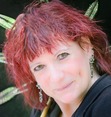Don't Like History? Don't Read a Mystery!
A lot of mystery readers will tell you that they don’t care about history. For them, reading is all about experiencing a fast-paced modern thriller, a whodunit, a crime drama. Figuring out where the red herrings have been scattered, trying to beat the protagonist to the solution.
But what I’d like to suggest is that mysteries really are, at their core, all about the past.
The beginning of a mystery story always deals with the end of something. In murder mysteries, that tends to be a human life. So mystery readers and mystery writers are all—in a sense—archaeologists, delving back into the past to see what possibly insignificant detail drove the victim along a certain path to meet their death.
And maybe that’s important. Maybe we always need to find the path from the past in order to get to the future. Maybe history isn’t all that uninteresting.
I’ve been exploring the past in one way or another for most of my life. When my friends in primary school wanted to be astronauts or rock stars or fashion designers when they grew up, I wanted to be an archaeologist. When I started writing, I began with a novel set in the 14th century. And I think that my current series—mysteries set in the present day that have their causation rooted in the past—is a natural development for someone who believes that the past never really goes away.
We all have skeletons in our closets, whether the “we” refers to us as individuals, as communities, as families, or as countries. There are things we’ve all done that we’d prefer stayed buried. So even as we identify with the detective in a mystery, there’s also a part of each of us that understands the fear or need that drove the killer to act.
History is often poorly taught in school, and the subject as a whole is vast enough to discourage even those who want to explore it. So here’s a shortcut, the option of getting a well-written overview through which you might have a sense of where all of us have been: Christopher Lascelles’ A Short History of the World. Buy it. Read it. You might be surprised at what you find out.
And remember that there’s a reason why genealogy is so popular. Uncle Ernie may have had crooked teeth and Grandma could have been something of a drinker—but they’re part of your past, part of your family, part of who you are.
Part of your history. Every story has a beginning, whether it’s the story of your life or the story in a mystery novel, and that beginning can have its roots well in the past. And as a culture, as readers, as writers, we’re imperfect at understanding why we do what we do. We can’t set up experiments to see how situations will turn out, so looking at the past has to be our most vital evidence as we try and figure out why our complex species does what it does.
Like murder.
But what I’d like to suggest is that mysteries really are, at their core, all about the past.
The beginning of a mystery story always deals with the end of something. In murder mysteries, that tends to be a human life. So mystery readers and mystery writers are all—in a sense—archaeologists, delving back into the past to see what possibly insignificant detail drove the victim along a certain path to meet their death.
And maybe that’s important. Maybe we always need to find the path from the past in order to get to the future. Maybe history isn’t all that uninteresting.
I’ve been exploring the past in one way or another for most of my life. When my friends in primary school wanted to be astronauts or rock stars or fashion designers when they grew up, I wanted to be an archaeologist. When I started writing, I began with a novel set in the 14th century. And I think that my current series—mysteries set in the present day that have their causation rooted in the past—is a natural development for someone who believes that the past never really goes away.
We all have skeletons in our closets, whether the “we” refers to us as individuals, as communities, as families, or as countries. There are things we’ve all done that we’d prefer stayed buried. So even as we identify with the detective in a mystery, there’s also a part of each of us that understands the fear or need that drove the killer to act.
History is often poorly taught in school, and the subject as a whole is vast enough to discourage even those who want to explore it. So here’s a shortcut, the option of getting a well-written overview through which you might have a sense of where all of us have been: Christopher Lascelles’ A Short History of the World. Buy it. Read it. You might be surprised at what you find out.
And remember that there’s a reason why genealogy is so popular. Uncle Ernie may have had crooked teeth and Grandma could have been something of a drinker—but they’re part of your past, part of your family, part of who you are.
Part of your history. Every story has a beginning, whether it’s the story of your life or the story in a mystery novel, and that beginning can have its roots well in the past. And as a culture, as readers, as writers, we’re imperfect at understanding why we do what we do. We can’t set up experiments to see how situations will turn out, so looking at the past has to be our most vital evidence as we try and figure out why our complex species does what it does.
Like murder.
Published on March 21, 2016 11:56
•
Tags:
deadly-jewels, historical-fiction, martine-leduc, montreal, mystery-fiction
No comments have been added yet.



